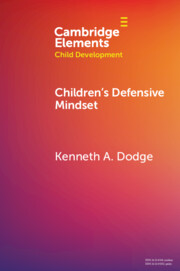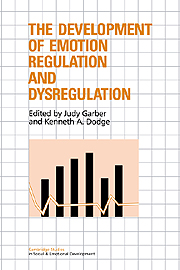Children's Defensive Mindset
The primary psychological process leading aggressive children to grow into dysfunctional adults is a defensive mindset, which encompasses a pattern of deviant social information processing steps, including hypervigilance to threat; hostile attributional biases; psychophysiological reactivity, experience of rage and testosterone release (in males); aggressive problem-solving styles; aggressogenic decision-making biases; and deficient behavioral skills. These processes are acquired in childhood and predict adult maladjustment outcomes, including incarceration and premature death. The antecedents of defensive mindset lie in early childhood experiences of trauma and threat. The Fast Track (FT) intervention was designed to improve social competence in aggressive children. A randomized controlled trial demonstrated that FT is effective in preventing externalizing psychopathology; the primary mediating factor is the reduction of defensive mindset processes. This Element concludes with insights that defensive mindset might also explain dysfunction in other realms, including school culture, parenting, marriage, the workplace, intergroup relationships, politics, and international relations.
Product details
June 2024Hardback
9781009509831
94 pages
235 × 158 × 11 mm
0.28kg
Available
Table of Contents
- 1. Introduction
- 2. What is defensive mindset?
- 3. A general model of social information processing
- 4. Life course outcomes of defensive mindset
- 5. Early threatening experiences lead to defensive mindset
- 6. Clinical intervention
- 7. Defensive mindset in everyday life
- References.




